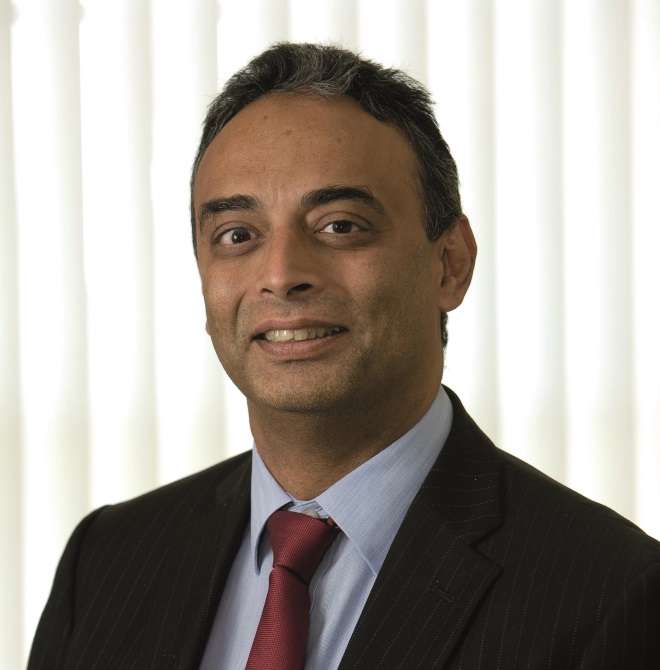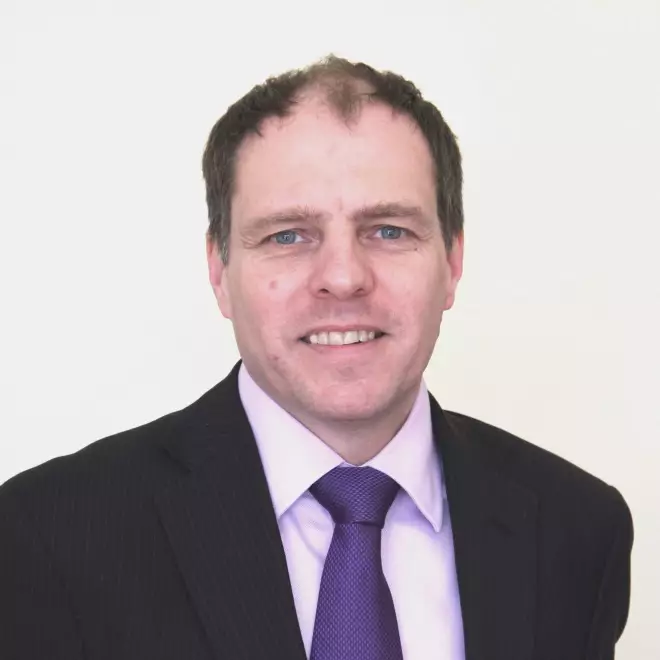
Jamel Akib / Getty Images
It was dif
ficult to miss the recent wid
espread media coverage of an initiative from the Royal Pharmaceutical Society (RPS) and the Royal College of General Practitioners (RCGP) for pharmacists and GPs to collaborate more closely over patient care
in E
ngland.
Their vision, set out in a joint statement published in March 2015, called for more pharmacists to work in general practice and for better liaison between community pharmacies and GP surgeries.
But reaction to the proposals has been mixed. Although there are many ardent proponents, tensions have emerged, most notably over whether this will lead to the loss of existing community pharmacy services.
The proposals form part of an English Pharmacy Board campaign to improve working between the health professions, and has two aims. Firstly, it calls for community pharmacies and general practice to collaborate on patient care: for practices, local commissioners and NHS England to better utilise the skills of local pharmacists in the community when addressing patients’ pharmaceutical needs.
The second aim, which attracted most press attention, is for more pharmacists to work as part of the GP practice team, making use of pharmacists’ expertise around medicines to better address pharmaceutical care, reduce medicines waste and free up the time of GPs to focus on more complex clinical diagnosis and disease management.
These pharmacists would reduce the pressure on GP surgeries by dealing with day-to-day medicines problems — including liaising with hospitals, care homes and community pharmacists to join up care and reduce medication errors and harm. The role may also include medication and polypharmacy reviews for patients with chronic conditions, or the frail elderly.
While not a new position in itself — some pharmacists already work in general practice — the RPS and RCGP want this to become a mainstream role. The RPS believes this could create thousands of new jobs for pharmacists.
Community pharmacist to practice partner
Bristol-based pharmacist Rachel Hall has worked in general practice since 2002. She sought out a practice-based position following six years with a large community pharmacy multiple, during which time she realised she wanted a clinical role in the community.
Hall began working in intermediate care, and studied for clinical postgraduate qualifications while working half a day per week as a practice pharmacist at the Old School Surgery in Bristol. She gained a prescribing qualification and, after impressing the partners with an audit of her care of patients with type 2 diabetes, was recruited to a full-time position at the surgery in 2006.
“Over the time I was with them as a practice pharmacist I showed them I could do lots of things; I could help with prescriptions, discharge, medicines queries — they learnt that having a pharmacist around could be very useful. That’s how the full-time role came about.

Hall: practice-based roles good for the profession
“I’m still here eight years later, and now I’m a partner,” she says.
Hall says practice-based roles are a good move for the profession. “I think it’s the way forward for primary care. I don’t think we use our pharmacists enough: we are highly skilled healthcare professionals.”
She adds: “The benefits of working in primary care are huge.”
Ravi Sharma is lead practice pharmacist at the DMC Healthcare group, which runs six general practices in London and the South East. He believes that practice-based pharmacists strengthen collaboration between local community pharmacies and general practices by acting as a link between services. “The NHS is really struggling – we need to make full use of resources. We have community pharmacy so well placed and [able to] see larger numbers of patients than even general practices do. We need to share the workload to help support the public.”
Community pharmacists can also help to forge these ties, he says. “There’s an opportunity for community pharmacists to come into general practice and help to break those barriers and speak to GPs,” he says. “To ask: as a community pharmacist, how can I help you?”
Stephen Messham, British Pharmaceutical Students’ Association public relations officer, says pharmacy students welcome the diversification in roles, which should lead to better job prospects.
“It’s expected that this coming pre-registration year there might not be enough pre-registration places for the amount of graduates coming out, and obviously that number’s getting bigger,” he says. “With a new school of pharmacy set to open next year, it’s going to get even more competitive to get a pre-registration place. This could be an avenue where they [practices] could be used for expansion of pre-registration numbers.”
The UK Clinical Pharmacy Association backs the plans. A spokesperson says: “The medicines management and optimisation skills of pharmacists can clearly enhance the care of patients through this professional alliance.
“Overall, collaborative working is clearly in the interests of all concerned — patients, professionals and healthcare systems.”
GPs are in favour, too. As well as the clear endorsement from the RCGP, the British Medical Association (BMA) says the idea of more practice-based pharmacists “has the potential to improve the skills mix in local GP services and raise the number of healthcare professionals on hand to provide help to patients”.
Chaand Nagpaul, BMA GP committee chair, says there needs to be funding for personnel and premises for the idea to work: “If we are to realise the potential behind this announcement, there will need to be a well thought out, adequately resourced plan to ensure it is delivered effectively.”
Pharmacy Voice, which represents three large community pharmacy organisations and their members, has cautiously welcomed greater collaboration with general practice. But director of policy Elizabeth Wade says some members remain concerned that the large-scale appointment of practice-based pharmacists could lead to services being shifted out of community and into general practice.
“Those are some of the questions that people are [asking] and want to make sure are being thought through — not because I think that’s what the RPS and RCGP have explicitly proposed, but… just making sure we’re thinking through potential unintended consequences of one particular model,” she says. “That we don’t inadvertently unpick the really positive things around those enhanced services that are commissioned in community pharmacy, and all of the reasons why the NHS decided to commission them from community pharmacy in the first place.”
Pharmacy Voice will be lobbying NHS England, Health Education England (HEE) and other national pharmacy bodies to make sure core community pharmacy services are not “inadvertently undermined” by these new approaches, she adds.
Wade believes more attention should be paid to collaboration between community pharmacies and GP practices. Pharmacist access to the summary care record and multidisciplinary training for pharmacists are needed to better integrate primary care, she says. She also warned there should be a “level playing field” on opportunities for all pharmacists to get involved in any new models of care promoted by NHS England.
Risk to services?
RPS president and community pharmacist Ash Soni was one of the first pharmacists to work on a sessional basis in general practice more than 20 years ago.
“Having the skills of a pharmacist working with GPs has to be a good thing,” he says, “We know the strength of general practice around diagnosis, the strength of pharmacists around best use of medicines — so surely we should be using that for the needs of the patient.”
Soni acknowledges tha
t some pharmacists have concerns but says fears about the potential shifting of medicines use reviews and new medicin
es services away from community pharmacy and into general practice are unfounded.
“The only way that will shift is if either we’re not delivering it in community to the level it needs to be, or if somehow negotiators give it away,” he says, adding that he has “absolute faith” that negotiators will retain and add to what is included in the existing community pharmacy contract.

Soni: community pharmacists need to offer their skills to local GP practices
Another objection is that the practice-based pharmacists could weaken the roles of clinical commissioning group (CCG) pharmacists working on local formularies and commissioners’ medicines management decisions for general practice. Again, Soni rejects this concern. “There’s a misunderstanding of what and how these pharmacists will operate. Their role is to optimise medicines and make sure the patients are getting the best possible care,” he says, and not to contradict the CC
G pharmacists.
“[The practice-based pharmacists] are there to support the decisions that are being made by that medicines team. Surely it’s a good thing, to have a pharmacist being able to talk to a pharmacist.”
Nevertheless, the cam
paign is much broader than simply pharmacists working in GP surgeries, says Soni, and he challenges community pharmacists to be more involved in primary care. “
If you’re a community pharmacist, look and think about where yo
u think their [the practices’] big challenges lie. Is it around repeat medication? Choose something simple to start with. Go and have a conversation with them, and start to look at what you could offer that would make a change.”
At a quarterly meeting in April 2015, members of the Scottish Pharmacy Board of the RPS looking at the England proposal warned it was “vital” pharmacists working in GP practices retained professional autonomy and did not become subordinate to GPs in the surgery. Soni says the RPS would want to hear if that does happen, but he doubts GPs would begin to instruct pharmacists on what to do.
The RPS Scotland board is preparing its own policy on the initiative, which will be released shortly, while the RPS in Wales is considering a separate campaign to focus on the integration of pharmacists’ expertise across primary care, including the new primary care clusters being formed there.
National roll-out
NHS England has reacted positively to the proposals. Bruce Warner, deputy chief pharmaceutical officer, told the campaign’s launch event in March that “the time is right” for more pharmacists to work as part of GP practice teams across the country.
NHS England is incorporating the proposals into its ten-point GP workforce action plan, a range of initiatives to boost the dwindling numbers of family doctors by recruiting, retaining and incentivising GPs. This is backed by £10m initial funding, though it is unclear how much of this could be earmarked for pharmacy.
As part of their bid to convince NHS England to incentivise their proposals, the RCGP and RPS devised a business case which proposed that practices hiring pharmacists should be reimbursed to the tune of 50% of salary costs in the first year, 30% in the second year, and 15% in the third year.
NHS England’s backing isn’t essential for GP practices or CCGs to begin employing pharmacists. But its financial support could help kick-start the widespread use of pharmacists in general practice as a more mainstream model of care.
NHS England and HEE are understood to be favour of incentivising the hiring of a smaller cohort of highly skilled and experienced pharmacists — most likely prescribers working at the equivalent of NHS grade 8A. Effectively, this would be the equivalent of a salaried GP in the practice. When asked, an NHS England spokesperson would not confirm its intended target of this funding, instead saying it is “working through how this [ten-point plan] is implemented”.
This view contrasts with the RPS, which says many pharmacists with just a few years’ experience have something to offer general practice.
Soni says he would understand if NHS England decided to target its funding in areas where they are likely to see the largest benefit, including regions with too few doctors or high levels of deprivation, and even if they restricted their funding to more senior pharmacists.
He believes the final roll-out is likely to be in the form of a “blended model”, including some senior prescribing pharmacists funded by NHS England in certain areas, alongside roles for junior pharmacists who may not be prescribers but nonetheless could offer a great deal to a practice. “You can’t wait for everyone to be a prescriber to do it,” he says.
The lack of central funding for less experienced pharmacists to take on practice-based roles will not hold back the overall initiative, says Soni. “At the end of the day, if a GP practice turned around and said, ‘I want a pharmacist, and I want to pay for it’, are you going to say no, you can’t?”
He believes that ultimately it is not for the RPS to dictate how this programme should be rolled out, but to show the value and benefit to patient care of the principle behind the proposals.
So while some practices may wish to employ pharmacists directly, others may not have the space in their premises to accommodate a pharmacist’s clinic, and so a sessional arrangement where a pharmacist sees patients referred by the practice in their community pharmacy may work better.

Stretch: ‘What we have is a lot of willing pharmacists who don’t know how to start’
However the roll-out proceeds, Sharma says the RPS and others must continue to champion the benefits of what pharmacists can bring to general practice, and to make it clear that these are opportunities for pharmacists from all sectors.
He says there is a “good, sustainable model” for pharmacists to be employed in GP surgeries. “By 2020, I’d love every general practice across the country to have a practice-based pharmacist,” he says.
The next step will come after the UK general election, when it is expected that NHS England will announce its plans for the initiative. But even this would only be the beginning of a new relationship between pharmacy and general practice.
What does a practice-based pharmacist do?
Independent prescribing pharmacist Graham Stretch leads a team of pharmacists and pharmacy technicians embedded in several GP surgeries in Ealing, West London.
This team and their medical colleagues were recently shortlisted for ‘Primary care team of the year’ in the BMJ Awards 2015 for their work on a care home service at the Argyle Surgery practice.
Members of the team – which has four prescribing pharmacists, one clinical pharmacist, a pre-registration student and four pharmacy technicians – provide a range of services at up to half a dozen local GP practices and several community pharmacies. Stretch’s expertise is in elderly care; another of his pharmacists, Raj Thakerar, works in chronic disease management, such as for patients with respiratory diseases. One pharmacist, Kash Ismail, has roles in prescription management and repeats, some of which is done from his pharmacy premises under contract with the local surgeries. A clinical pharmacist offers domiciliary care, including bedside medication reviews.
Stretch splits his time between several local practices and community pharmacy. In his practice role, he typically sees patients referred to him by the GPs, particularly patients with complex needs where polypharmacy is present. He holds a 20–30 minute consultation with each patient, in which time he can address any medicines issues or problems with medical devices, and give advice about treatment.
Stretch welcomes the Royal Pharmaceutical Society (RPS) and Royal College of General Practitioners (RCGP) campaign and sees huge potential for more pharmacists to work in primary care. “I was delighted to hear the news [about the campaign]. It vexes me that members of our profession aren’t welcoming it.
“One of the GPs has said that my work here saves him 45 minutes a day. Translate that into money [across the year] and it’s an enormous sum.
“We need to be welcoming this. There are a sea of patients out there, there’s loads of work; it won’t reduce work for community pharmacy.”
But Stretch believes some pharmacists will need help making the shift to working in primary care. “We don’t have an army of pharmacists, despite what the RCGP says. What we have is a lot of willing pharmacists who don’t know how to start. We need the RPS to show them how to get started and grow.”

